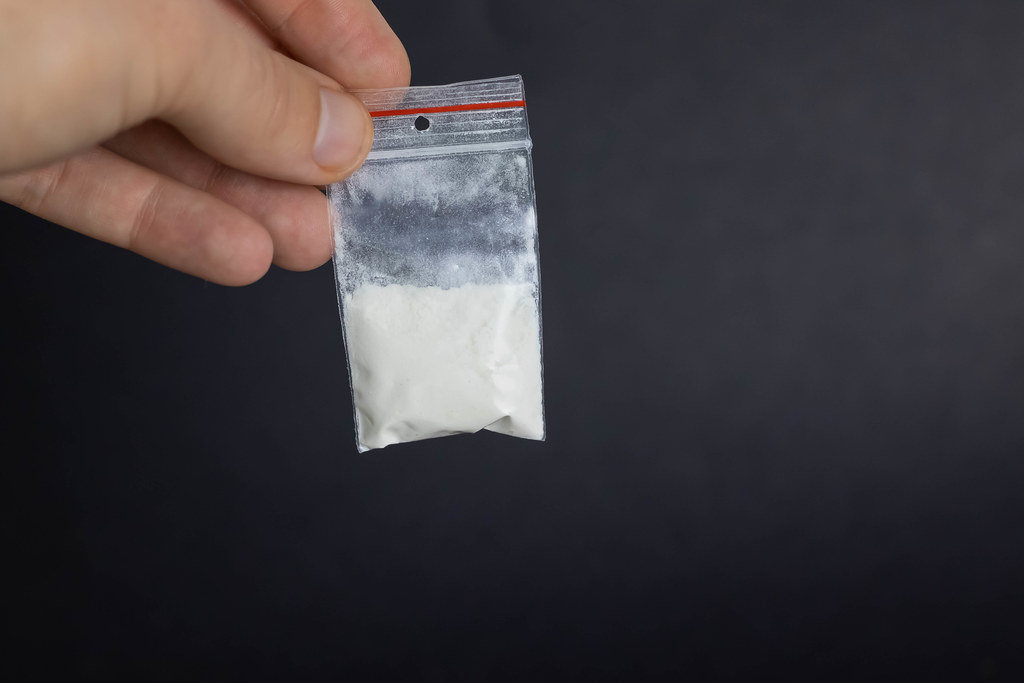Drug Trafficking vs. Drug Possession in Oklahoma: Know the Differences
Charges of drug trafficking or drug possession in Oklahoma can carry serious consequences, with penalties varying widely depending on the exact nature of the charge. Among the most common drug-related offenses here are possession and trafficking, each of which has unique implications under the law. The difference between a possession charge and a trafficking charge may not be immediately clear, but understanding how Oklahoma defines these offenses—and how factors like intent, amount, and prior history affect them—can make a significant difference if you’re facing charges.
Below, we’ll break down the distinctions between drug trafficking and drug possession in Oklahoma, the associated penalties, and what to do if you’re facing either charge.
Understanding Drug Possession in Oklahoma
Drug possession is typically the lesser of the two charges, but it’s still a serious offense under Oklahoma law. Possession means that a person is knowingly carrying or has control over an illegal substance or a controlled dangerous substance (CDS) without a prescription. Oklahoma law (Title 63 O.S. § 2-402) classifies drug possession into two main categories: simple possession and possession with intent to distribute.
- Simple Possession: This charge applies when an individual is found with a small amount of an illegal substance, with no indication of distribution or trafficking. Penalties for simple possession were reduced under recent reforms (such as State Question 780) from a felony to a misdemeanor for first-time offenders. Convictions for simple possession can still lead to up to one year in county jail and fines up to $1,000, but they no longer carry felony-level penalties for first-time offenses.
- Possession with Intent to Distribute: If the circumstances suggest the person planned to distribute the drugs—such as the presence of scales, baggies, large quantities of cash, or a quantity of the drug exceeding personal use—prosecutors may pursue possession with intent to distribute charges. This is a more severe offense and is typically treated as a felony, with penalties including lengthy prison sentences and substantial fines.
Drug Trafficking Charges in Oklahoma
Drug trafficking is a much more serious offense and carries harsher penalties than possession. Under Oklahoma’s Trafficking in Illegal Drugs Act, trafficking isn’t just about physically moving drugs from one place to another—it’s about possessing or controlling specific quantities of certain drugs. In Oklahoma, drug trafficking charges are often based on the amount of the substance in possession, regardless of whether there is clear evidence of intent to sell or distribute.
Drug Quantity Thresholds for Trafficking Charges
Oklahoma law establishes quantity thresholds that differentiate possession from trafficking. If someone is found with more than the specified amount of a controlled substance, they can be charged with trafficking, even if there’s no evidence they intended to distribute the drugs. Here are some examples of the quantity thresholds for various substances:
- Marijuana: 25 pounds or more
- Cocaine: 28 grams or more
- Heroin: 10 grams or more
- Methamphetamine: 20 grams or more
- Ecstasy (MDMA): 30 tablets or 10 grams or more
Possessing these amounts triggers automatic trafficking charges under Oklahoma law, meaning someone can be charged with trafficking even if they have no prior history or aren’t caught actively selling drugs. For Oklahoma prosecutors, quantity alone can be enough to prove trafficking.
How Intent, Amount, and Other Factors Affect Charges
When it comes to drug-related charges, intent and quantity are two primary factors that influence whether a person faces possession or trafficking charges.
- Intent: In a possession case, intent matters when deciding if the charge should be elevated to “possession with intent to distribute.” Evidence of intent could include items like digital scales, small plastic bags, weapons, or a large quantity of cash, all of which suggest a plan to sell or distribute.
- Quantity: For trafficking charges, quantity is often the decisive factor. As noted above, the amount of the substance alone can lead to trafficking charges. Large quantities typically lead to felony trafficking charges, while small amounts are more likely to be prosecuted as possession.
- Prior Convictions: Oklahoma takes repeat offenses seriously. If someone has a history of drug-related charges, they’re likely to face harsher penalties upon conviction. Prior convictions can also increase the likelihood of a possession charge being elevated to a trafficking offense.
- Controlled Substance Type: Certain drugs carry stricter penalties. Methamphetamine, for example, is considered a significant threat by law enforcement, meaning those caught with it, even in small amounts, may face more aggressive prosecution.
Penalties for Drug Possession vs. Drug Trafficking
- Possession Penalties: First-time possession charges are typically misdemeanors, with penalties of up to one year in county jail and fines. However, if someone is charged with possession with intent to distribute, the penalties become more severe and often include felony charges, years in prison, and fines up to $20,000.
- Trafficking Penalties: Drug trafficking in Oklahoma is classified as a felony and is punishable by long prison sentences, often ranging from four years to life in prison, depending on the drug and quantity involved. Trafficking marijuana, for instance, can carry a minimum sentence of four years, while trafficking methamphetamine can lead to a minimum of 10 years. Additionally, fines for trafficking can go as high as $500,000, making it clear that the state intends to deter large-scale drug operations.
What to Do if You’re Facing Drug Possession or Trafficking Charges in Oklahoma
If you’re facing drug charges in Oklahoma, the stakes are high, and it’s essential to act quickly. Here’s what you should do:
- Seek Legal Representation Immediately: Drug cases are complex, and Oklahoma’s tough stance means you need experienced legal counsel on your side. A skilled attorney can help clarify the charges against you, challenge the evidence, and explore possible defenses to reduce or dismiss your charges.
- Document Your Case: Keep track of any relevant information about your arrest and interactions with law enforcement. Details about the search, seizure, and arrest can be critical to your defense.
- Don’t Speak to Law Enforcement Without Legal Counsel: Anything you say to police can be used against you. Exercise your right to remain silent and consult with an attorney before answering questions or making statements.
- Understand the Penalties and Possible Defenses: With the help of your attorney, review the potential penalties and explore defense strategies. Whether challenging the legality of a search or questioning the evidence for intent, your attorney can identify the best path forward.
Get Overman Legal on Your Side
As we all know, when it comes to drug charges, Oklahoma doesn’t pull any punches. If you’re facing any kind of drug charge here, you need a legal team that is experienced in handling drug possession and trafficking cases and is prepared to fight tirelessly on your behalf. The lawyers at Overman Legal understand the complexities of Oklahoma’s drug laws and know what it takes to build your best defense and secure the most favorable ourcome. And trust us, we get results.
Whether you’re facing a possession charge or a serious trafficking accusation, don’t leave your future to chance. Contact Overman Legal today for a free consultation and let us guide you through this challenging time with empathy, expert counsel, and dedicated advocacy.




